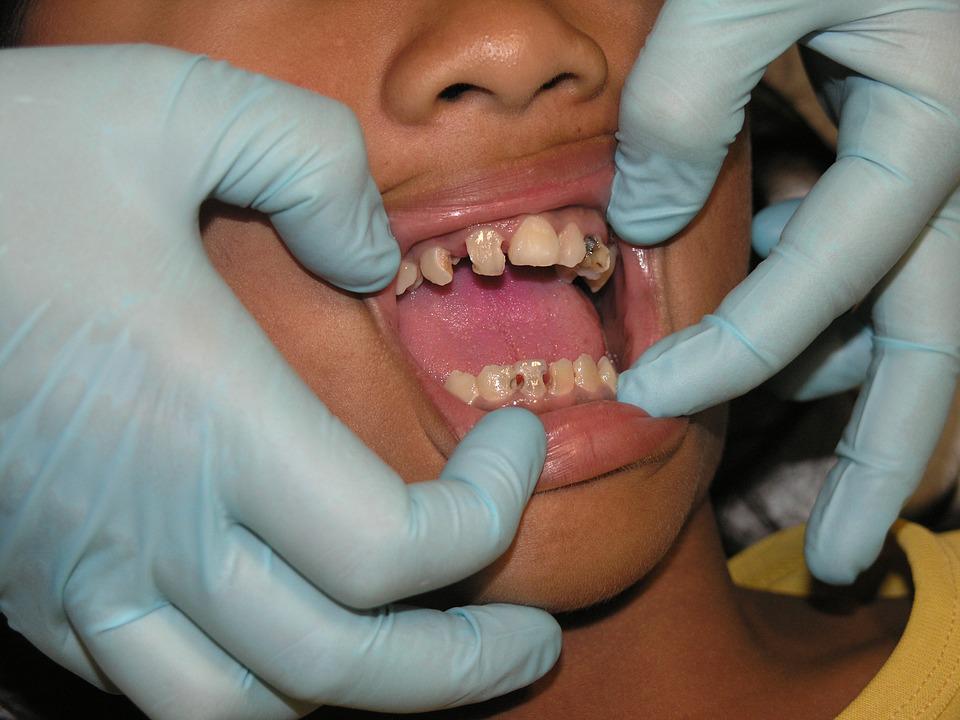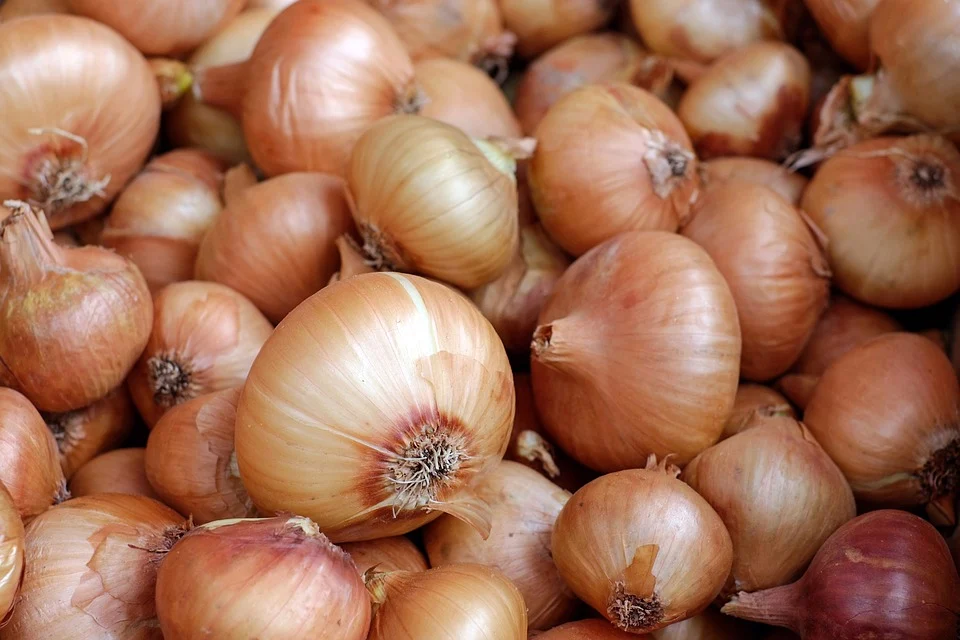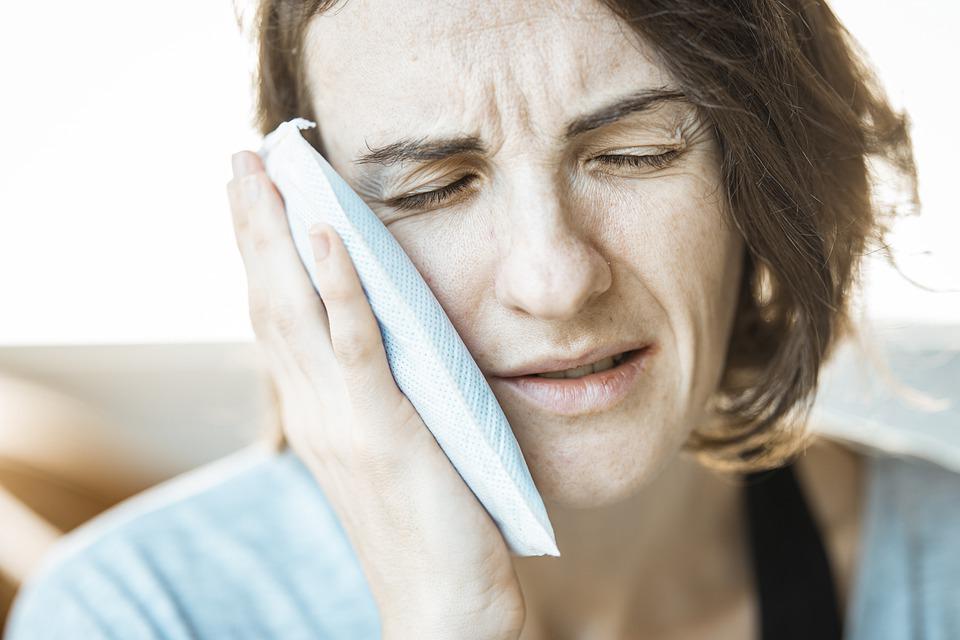It’s never a secret that when our tooth is painful, our whole body is in complete discomfort, and we feel unbelievably anxious. One of the persistent pains that makes it difficult to get a good night’s sleep is toothache. Your sleep cycle is typically disturbed by a nighttime toothache. You frequently change your sleeping position, making it impossible for you to get a good night’s sleep.
Reasons Why Toothache Seems to be Worst at Night
Numerous things can come into play and result in dental discomfort. Tooth grinding, tooth decay, sinusitis, an abscessed tooth, and infected gums are the leading causes of toothaches. This pain can be exceedingly unpleasant and bothersome, whether it is a slight or severe pain. What’s worse, though, is when a toothache significantly interferes with getting a decent night’s sleep.
There are several causes for why toothaches frequently worsen at night or when you are resting in bed. These may consist of:
- The food you eat for dinner. After supper, especially a big meal, your toothache can intensify, keeping you up all night in pain. A hot, cold, sweet, acidic, or starchy evening meal can frequently worsen dental issues and cause more significant discomfort.
- A very active day. The day-to-day craziness of school, work, and other activities can frequently keep you so focused that you don’t even notice the toothache. However, the discomfort becomes apparent and might even feel worse in the evening when you finally have a chance to unwind away from all the distractions.
- Jaws clenching throughout the day. Many people unconsciously clench their jaws or grind their teeth when anxious or tense throughout the day. This causes discomfort at night because of the pain that accumulates.
- Your position during sleep. Your sleeping position can also make your toothache seem to worsen. Your sleeping position causes your toothache to intensify and become intolerably painful because more blood flows to the brain while one is lying down, which exerts a lot of pressure on the mouth’s delicate tissues.
- Teeth grinding during sleep. Most nighttime tooth grinders are unaware that they are doing it. Wear on the tooth enamel and dental ache in the morning indicate teeth grinding. Your teeth can occasionally cause pain that spreads to your jaw and the area behind your brow. Additionally, it’s not unusual for those who grind their teeth during the day to feel tired. Make an appointment with a dentist immediately if you think your toothache is caused by teeth grinding. To protect your teeth while you sleep, you should wear a night guard.
Managing Toothache to Stop it from Interfering Your Sleep
Effective toothache treatments will not break the bank and aid in a restful night’s sleep. You can attempt various treatments at home that are more than reasonably priced.
Home Ingredients for Toothache Remedies
1. Prepare Some Peppermint tea
Consider preparing peppermint tea; you can have it brewed or cold; the tea smells lovely and has some tranquilizing characteristics. Mix a cup of boiling water and one teaspoon of dried peppermint leaves and let the mixture steep for 20 minutes. Then rinse your mouth with the mixture. If you don’t have any dried tea leaves, teabags will do. Prepare one, let it cool, and then apply it to the sore spot. However, this painkiller effects are just momentary. Repeat the procedure whenever the pain returns.
2. Use Hydrogen peroxide as Mouthwash.
You can relieve pain with hydrogen peroxide, which will help you deal with discomfort. In addition to reducing plaque, it can help stop dangerous germs from growing and treat bleeding gums. Just combine equal quantities of water and hydrogen peroxide at a 3 percent concentration. Gargle the hydrogen peroxide and water mixture and spit it out after. Make sure to swish clean water around your mouth several times.
3. Use Clove or clove oil as Toothpaste or Mouthwash.
Clove is not only an excellent food spice. It is a potent healer and a fantastic way to give your food a unique flavor. Since Clove contains the natural antibacterial eugenol, it has been used to heal toothaches for ages. Both Ayurveda and Chinese medicine have made extensive use of them. Here’s how to make some clove mouthwash or toothpaste on the fly. Clove is a common ingredient in toothpaste. To release the oil from the whole Clove, lightly chew it. Additionally, you can apply two drops of clove oil, in a minimal amount, to the area that is hurting and wait for the pain to fade. It works well as a temporary fix for dental emergencies.
4. Chew One or Two guava leaves
Guava leaves have antibacterial and anti-inflammatory properties. They treat gum swelling and oral ulcers in addition to toothaches. Chew on one or two leaves until the juice begins to act on the active tooth, combine some guava leaves with boiling water, let the mixture cool to room temperature, and then season with a bit of sea salt. To ease dental ache, use this mixture as Mouthwash.
5. Apply Thyme Oil Essential Mixture
Thyme is not only a well-liked spice but also a potent pharmaceutical that may treat acne, decrease blood pressure, and relieve toothaches thanks to its antioxidant and antibacterial characteristics. Put a few drops of water and thyme essential oil on a cotton ball. After diluting the oil, use the cotton ball to apply to the sore spot. Next, combine a few drops of essential oil of thyme with a small glass of water to create a mouthwash.
6. Gargle Wheatgrass Juice
Wheatgrass possesses antimicrobial qualities that provide immediate and long-term advantages while reducing pain and tooth damage. For maximum benefits, either immediately consume wheatgrass or gargle with its juice. Gums are cleansed of toxins, given essential nutrients, and decreased bacterial development. Additionally, if you use it frequently, it offers you fresh breath. It is chlorophyll, which contains a vast number of unique enzymes along with hundreds of vitamins, minerals, and amino acids. Due to all of this, it is an excellent all-natural treatment for gum disease and other unpleasant ailments.
7. Apply Garlic on the Aching Tooth
For its many medical benefits, garlic is well-known and frequently utilized. It relieves pain and eliminates hazardous microorganisms. Either form a paste out of it and apply it directly to the affected area or gently chew it. Until the pain is gone, you can keep using this natural remedy. If the smell of garlic is causing you to have reservations about this cure, remember how effective it is at relieving pain and forget about the scent.
8. Put Onion on the Painful Tooth
The phytochemicals in onions work against the pathogens causing the infection and temporarily dull your pain. To utilize it most effectively, cut off a slice of the onion and bite it on the painful side of your mouth. This enables the onion juice to get inside your tooth. Use a finger to keep the onion slice against the impacted tooth if the pain is too great to chew. Remember that the stronger the onion’s healing impact, the more intense it will be. When it comes to reducing dental discomfort, sweet onions are less effective than red or yellow ones.
9. Gargle with Saltwater Solution
Saltwater is a simple and efficient toothache medication and a natural disinfectant. To use it as Mouthwash, combine 1/2 spoonful of salt with a glass of warm water. Additionally, it cleans the region around the toothache and reduces swelling. To maintain the health of your teeth, dentists also advise using saltwater to rinse your mouth after your usual dental practice.
10. Apply Ice Compress
Using an ice pack or packing ice in a bag and wrapping it in a small cloth, apply this to the sore tooth for 15 minutes to numb the nerves. You can also try pressing it to your cheek over the painful tooth so that your brain receives the cold signals from your finger nerves, and those signals will outweigh pain signals since a cold compress also lowers swelling and inflammation.
Simple Tricks to Relieve Toothache at Night
A toothache that won’t go away can make your day miserable. It might be challenging to fall asleep because the discomfort frequently worsens at night. Fortunately, you can relieve tooth pain at night by taking medicine and employing natural therapies. Additionally, sleeping with your head elevated might lessen discomfort and swelling.
- Use salt water to rinse your mouth before going to bed. You can relieve discomfort and eliminate any bacteria that may be causing your toothache by rinsing with warm saltwater. When you have a toothache, clean your mouth with salt water at least twice daily. Remember to do one of these rinses before going to bed.
- Apply an ice pack to your jaw. To reduce swelling and stop fluid from accumulating in the area if your toothache is accompanied by soreness and inflammation. In the final few hours before night, use the ice pack on the sore or swollen area for 10 minutes, once per hour.
- At night, floss in between the impacted teeth. Before going to bed, clean your teeth, paying particular attention to the sore spot. The pressure causing the pain might be relieved by clearing accumulated debris between your teeth.
- Avoid consuming acidic, icy, complex, and sweet foods and beverages before bed. All these things typically make cavities in your teeth that may already develop worse, giving you a toothache.
- Choosing the correct mattress for bed. A high-quality mattress will significantly enhance your ability always to sleep, even when you have a toothache. We advise using a memory foam mattress for rest because it is cozy, supportive, and pressure-relieving. Your entire body is supported, which stops you from tossing and turning all night long.
- Elevate your head when you sleep. Place one or more pillows under your head when you’re prepared to go to sleep. Make sure the cushion you use, if you only use one, is thick enough to lift your head and shoulders. By avoiding fluid accumulation around the painful tooth, elevating your head helps reduce inflammation.
- If your dentist advises it, use a mouth guard at night. Ask your dentist to check you for bruxism symptoms during your subsequent dental examination. They could advise wearing a dental guard or splint to protect your teeth while you sleep.
CONCLUSION
The most excellent approach to treating is avoiding a toothache in the first place. You can lower your risk of developing oral health problems by brushing your teeth twice daily and flossing at least once. Avoid chewing on complex objects like ice or anything else that could break a tooth. Finally, schedule routine dental cleanings and examinations so you may receive care for minor tooth disorders before they worsen and necessitate costly treatments. To prevent toothaches from starting, take good care of your teeth and work with your dentist to tackle the underlying reasons for your pain.











